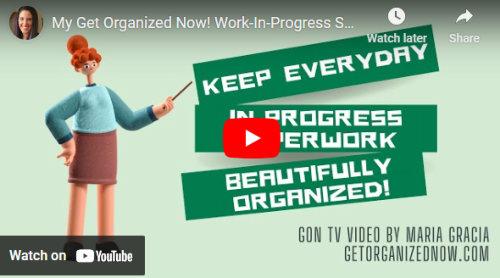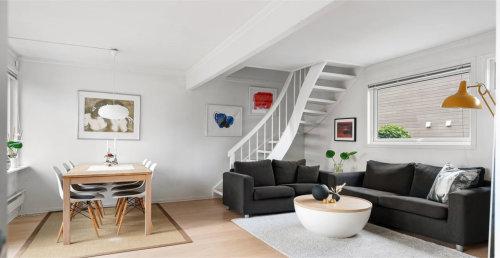It's easy to let clutter accumulate without even noticing. Boxes piled up in the attic, cabinets overflowing with food storage containers, or the mudroom packed with everyone's shoes become part of the background scenery, blending seamlessly into the fabric of our daily existence.
However, what many of us fail to realize is that this clutter can have a significant impact on our mental well-being and overall productivity.
Our brains are remarkably adaptive organs. They have the
ability to filter out irrelevant information and focus on what's essential for survival. While this is an incredibly useful feature in many aspects of life, it can also lead us to overlook the clutter that surrounds us. Over time, we become desensitized to the mess, and it starts to feel like it's not even there.
But the truth is,
clutter has a way of weighing us down, both physically and mentally. It can cause stress, anxiety, and even feelings of overwhelm.
Cluttered spaces make it difficult to think clearly and can impede productivity. So, how can we break free from the cycle of
clutter invisibility and reclaim our space and sanity?
Questions and Prompts to Overcome Clutter Invisibility
1. What is my clutter
threshold? Reflect on what level of clutter feels acceptable to you. Are you okay with a few items out of place, or does even a small amount of mess bother you?
2. How does clutter make me feel? Take some time to explore your emotions surrounding clutter. Do you feel stressed, anxious, or overwhelmed when
surrounded by mess? Understanding your emotional response to clutter can motivate you to take action.
3. What areas of my home are the most cluttered? Identify the specific areas in your home that are overrun with clutter. Is it the attic, the kitchen, or the garage? Pinpointing these trouble spots will help you
prioritize your decluttering efforts.
4. What is the purpose of each item? Evaluate the items in your home and consider their purpose. Do they serve a practical function or are they simply taking up space? Let go of anything that no longer serves a purpose or makes you happy.
5. Can I let go of sentimental items? Sentimental clutter can be some of the hardest to part with, but holding onto items out of guilt or obligation only adds to the clutter. Ask yourself if these items truly enhance your life or if they're weighing you down.
6. What systems can I put in place to prevent future clutter? Once you've decluttered your space, think about how you can maintain a clutter-free environment in the future. Establishing organizing systems and routines can help prevent clutter from building up again.
7. How can I make decluttering a habit? Incorporate decluttering into your regular routine to prevent clutter from spiraling out of control. Set aside time each week or month to tackle a specific area of your home and make decluttering a habit.
8. Who can support me in my
decluttering journey? Enlist the help of friends or family members who can support you in your decluttering efforts. Having someone to hold you accountable and offer encouragement can make the process feel less overwhelming.
By asking yourself these questions and taking proactive steps to address clutter, you can break free
from clutter invisibility and create a space that promotes peace, productivity, and well-being. Remember, decluttering is not just about tidying up your physical space – it's about clearing out the mental clutter as well.
P.S. If you’re committed to creating a
clutter-free, stress-free life, then make sure you use a SYSTEM that addresses all FOUR types of clutter most of us are struggling with: 1) Physical, 2) Paper, 3) Digital and 4) Emotional.












